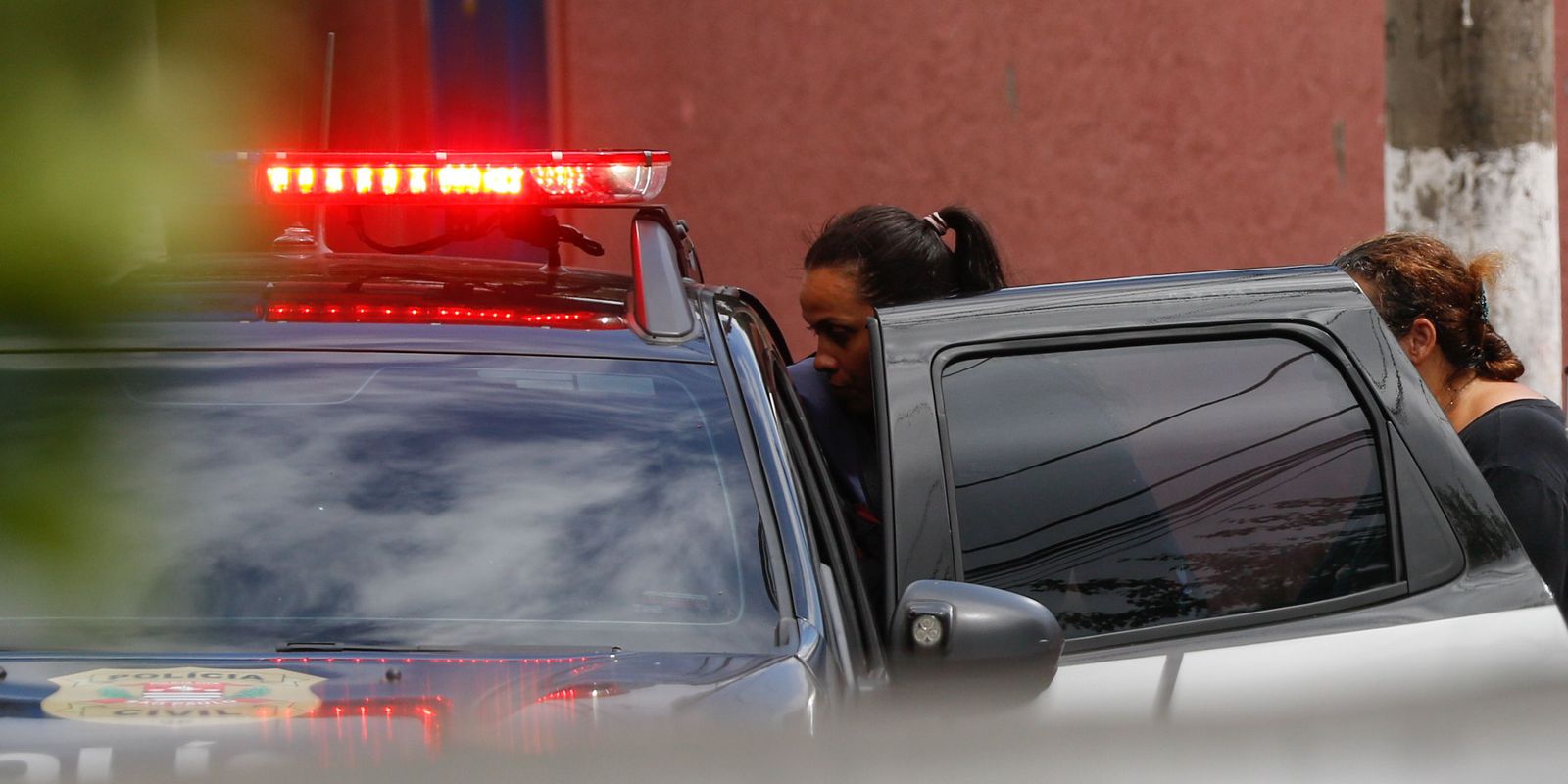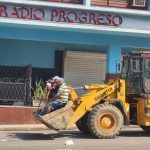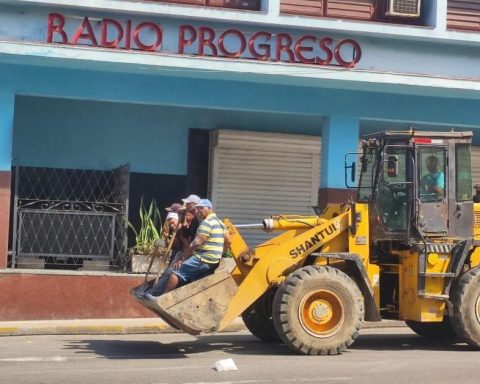The secretary of Education of the state of São Paulo, Renato Feder, said today (27) that the Thomazia Montoro State School, the target of an attack in the south zone of the capital, will be closed for a week. In a press conference at the secretariat’s headquarters, in Praça da República, he also informed that the entire school community will receive psychological support.
“Unfortunately we had this disaster and right after the attack we talked to the [secretária da] Health. We have a team of psychologists working in the school community. This is important to serve students, teachers, school staff and parents of students. This team of psychologists from the Department of Health will provide exclusive assistance to this community so that the shock is mitigated. The school will also be closed for a week and we will be monitoring to see if it needs to extend the closing time for this school. And we are going to anticipate the recess in July, when we will have an extra week to replenish this content”, said Feder.
Attack
On Monday morning, the school was the target of an attack provoked by a 13-year-old teenager. Teacher Elizabeth Tenreiro, 71 years old, died after being stabbed by student. According to the São Paulo government, she was a retired employee of the Adolfo Lutz Institute and, since 2013, had been working as a teacher.
She arrived at the Thomazia Montoro school just at the beginning of this year to teach Science. “According to the school principal, she was a wonderful woman. She had just arrived at the school and had charmed the students. She could already retire, but she didn’t want to because she loves the profession, ”said the secretary.
In honor of the teacher, the government of São Paulo decreed three days of official mourning in the state.
Three other teachers and a student were injured in the attack. A student was also treated in a state of shock. All of them have already been discharged, with the exception of Professor Ana Célia da Rosa, who is still hospitalized at the Hospital das Clínicas in São Paulo. She underwent surgery to suture the wounds and is doing well.
Actions
To contain the problem of violence in schools in the state, the government announced some actions. In the area of education, Feder said that the secretariat plans to hire 150,000 hours of psychological and psychopedagogical care for state schools.
“We provided virtual assistance at the time of the pandemic. Regardless of today’s sadness, the hiring of 150 thousand hours of assistance from psychologists and psychopedagogues for schools is already on the schedule. So the process is in the price quotation and in a few more weeks let’s do this bidding. This was already in the planning for the face-to-face service”, he said.
Since 2019, the Secretary of State for Education has also been developing a program to improve coexistence and school protection called Conviva SP, which provides for schools to become a more welcoming, collaborative and safe environment. The program was created after the attacks that occurred at a school in Suzanoin the metropolitan region of São Paulo, and has 300 professionals dedicated to providing psychological care in schools.
“These professionals are spread across the state and work on occurrences in schools. There are hundreds of calls [feitos por eles], of all kinds: fights, verbal aggression, discrimination, sadness, depression. We have this protection network called Conviva. When the alert is raised, these professionals go to the schools.”
In addition to these 300 Conviva professionals, the secretariat also has 500 people who were trained under the program to work in 500 schools in the state. The number, however, is still insufficient to serve the 645 municipalities in the state, which together add up to more than 5,000 schools in the state network.
“We are going to expand this to reach all schools. This is a very important measure. It’s not overnight because we need to train and select these people, but we’re going to send professionals from the teaching boards and expand from 500 to 5 thousand professionals dedicated to Conviva, so that we can be even more present in the school”, said the secretary.
According to Mário Augusto, manager of Conviva SP, this program has worked to bring a culture of peace in the school environment: “we have proposed conversation circles aimed at understanding and empathizing with students, bringing families into the school unit, talking about peace culture. This is something that has been sorely needed and our teams across the state have been doing just that. We have been working to raise awareness in school communities, even for those outside the school walls.”
In the area of security, the secretary of state for the portfolio, Guilherme Derrite, informed that the government of São Paulo intends to expand existing programs. “What is up to us now is to intensify the programs that already exist, such as the school round and the school solidary neighborhood program”, he said.
“What we can do is expand the programs that already exist. We can make the police more present, but knowing that, with 5,000 schools, it is a huge challenge to have a patrol per school.”
The secretary did not provide further details on how this expansion will take place, but he informed that preventive police work has been carried out and managed to prevent recent attacks that were being planned in cities like Tupã, São José dos Campos and Caçapava. “Actions are already being taken to prevent tragedies like this from happening,” he said.
Messages on social networks
During the interview, Derrite informed that the author of the attack on the Vila Sônia school had a restricted Twitter profile that is already being investigated. From the profile, he informed that he would carry out the attack. According to him, all people who liked or responded to the minor’s posts may be the target of the investigation. “Every person who liked or commented on his post will be investigated by the Civil Police,” said Derrite.
The perpetrator of the attack had also been involved in a disturbance at the school last week. “The school principal informed me that there was a conflict between today’s bully and another student. This morning, she had scheduled to speak with this student”, said Feder. According to the secretary, the author of the attack had recently been transferred from another school, where he had already faced problems. As the student is a minor, no further information about his background was provided.
Repercussion
The Union of Teachers of Official Teaching of the State of São Paulo (Apeoesp) pronounced itself on the tragedy. According to the union, the attack was the result of “negligence and abandonment by the state towards the units of the state education network in São Paulo”, wrote Apeoesp.
“Apeoesp has been conducting research on the issue of violence in schools for years and demanding that the State Department of Education and other state government bodies take measures to reduce the incidence of these occurrences. There is a lack of employees in schools, policing around the school units is deficient and, above all, there are no prevention policies that involve the school community to raise awareness about the problem and search for solutions”, says the note.
For Apeoesp, it is necessary for the government to replace the staff and reactivate school mediation programs.
The National Campaign for the Right to Education also released a note deeply regretting the tragedy. The note highlights that it is time to rethink actions to contain violence in schools.
“Every time something like this happens, narratives appear in the media about the lack of security and violence in schools, but deeper issues are not discussed and need to be problematized if our objective is to stop the wave of violence more frequent in school environments”, says the note.
For the campaign, violence in schools is a reflection of structural problems in Brazilian society and cannot be reduced and limited to a public safety solution.
“The attacks that have been taking place in Brazil and the contexts in which they are inserted must necessarily be the object of our reflection and action, necessarily passing through the debate on the end of the militarization of schools, the disarmament of society, the absence of the State in promoting of a culture of peace, of public mental health policies for its population and, fundamentally, a firm response is needed against fascist actions and speeches.”
The national secretary for the Rights of Children and Adolescents at the Ministry of Human Rights and Citizenship, Ariel de Castro Alves, also regretted the attack. In a message published on his social networks, he highlighted that Brazil “urgently needs an education for a culture of peace, for citizenship and human rights”.
















